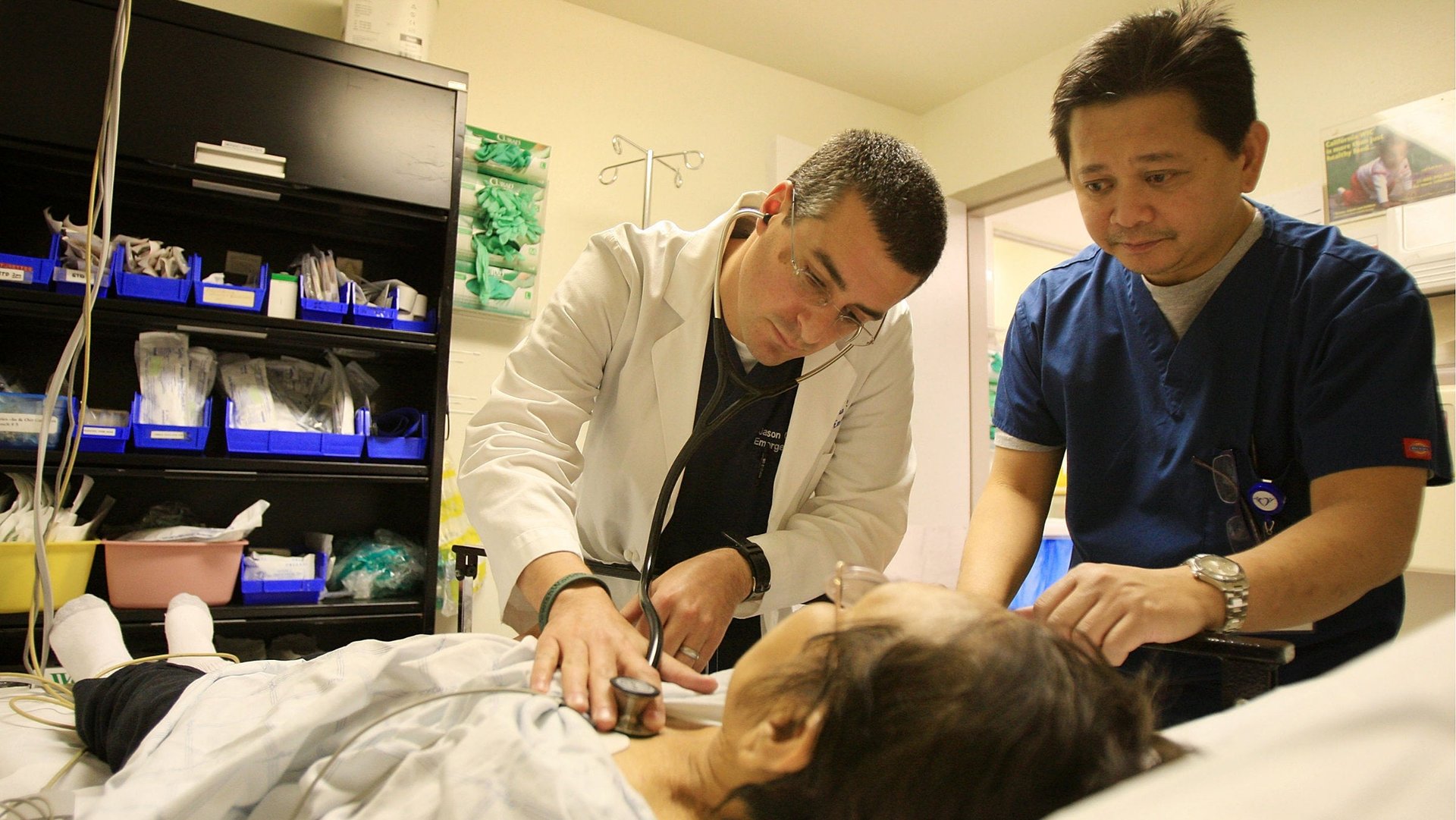America needs more immigrants, and here are four ways to get them
Immigration, long the backbone of American innovation, entrepreneurism, and human talent, has become a dirty word in recent years. This is unfortunate, because strategically conceived and well-targeted immigration should be seen as a precision tool for America to insure the best, optimal human capital needed to compete in the 21st century.


Immigration, long the backbone of American innovation, entrepreneurism, and human talent, has become a dirty word in recent years. This is unfortunate, because strategically conceived and well-targeted immigration should be seen as a precision tool for America to insure the best, optimal human capital needed to compete in the 21st century.
While official unemployment stands at 7.7%, the US is critically short in many STEM (science, technology, engineering, math) and healthcare areas. While the global economy has evolved, our immigration laws haven’t changed much since 1990. This is why we occasionally see tech titans like Bill Gates testify before Congress urging more visas for foreign students and scientists to help us remain competitive. According to Manpower Inc., the US ranked 5th globally in talent shortages, with 49% of employers surveyed experiencing critical problems versus the 34% average.
There’s plenty of room in America for more people. The US has one of the lowest population densities in the world at 85 people per square mile versus 360 in China, 650 in the UK, and more than 900 in India. Many American cities have depopulated over the last generation or two; they have ample infrastructure that would welcome new families and skilled workers. New Orleans, Detroit, Cleveland, Rochester, and Buffalo, among others, have lost thousands of people yet still offer big city infrastructure, education and opportunities. And since the financial crisis, there is excess housing ready to be absorbed. Targeted immigration policies could be meshed with special economic zones and other incentives to revive cities, fill skills gaps, and restore greater long-term stability and competitiveness to our labor markets.
Here are four new policies endorsed by non-partisan groups that are worth considering:
Raising H-1B Caps. The H-1B temporary high-skilled visa is often the only option for foreign-born STEM graduates who want to stay in the US and work on cutting-edge research at American firms. But arbitrary caps on H-1Bs, currently 65,000 per year, fill quickly. Just a few years ago the cap was 195,000 but the US could ramp this up to 250,000 with the recently passed STEM Jobs Act. The act will add 50,000 new visas but in reality, the legislation merely hijacked the 55,000 “diversity” visa quota; no new visas were added. We need immigration increases, not shell games.
Automatic residency for targeted graduates. One of the great American success stories has been our unrivaled research universities. For decades, the US has trained some of the world’s top innovators who have subsequently been sent back home to compete in the global marketplace. To keep this talent, we should grant green cards to foreign students who earn STEM (pdf) and other masters and doctorate degrees at our schools.
Residency for healthcare professionals. According to the Association of American Medical Colleges, a shortage of doctors in the US was expected even before the 2010 Affordable Care Act added millions of people eligible for health care coverage. Currently, there will be a shortage of 90,000 doctors by 2020 but may grow to nearly 150,000 by the end of the following decade. Doctors require years of training and cannot be made quickly. Nurses, too, are in shortage.
Entrepreneur visas. There is no US visa for foreign-born entrepreneurs who want to start companies that employ American workers. There has been new legislation, the Startup Visa Act of 2012, tying visas to job creation and revenue targets within a period of time. This is a great idea that shouldn’t be bogged down in politics.
Immigration reform is simply acknowledging the competition for labor globally, and that America is no longer the only economic game in town. Besides home country opportunities, Australia, Canada, Ireland, the UK and Singapore, among others, have eased their visa processes to lure foreign students, innovators, and entrepreneurs.
America’s success has always been hinged on cultivating productive human capital, and immigration is an important part of keeping our